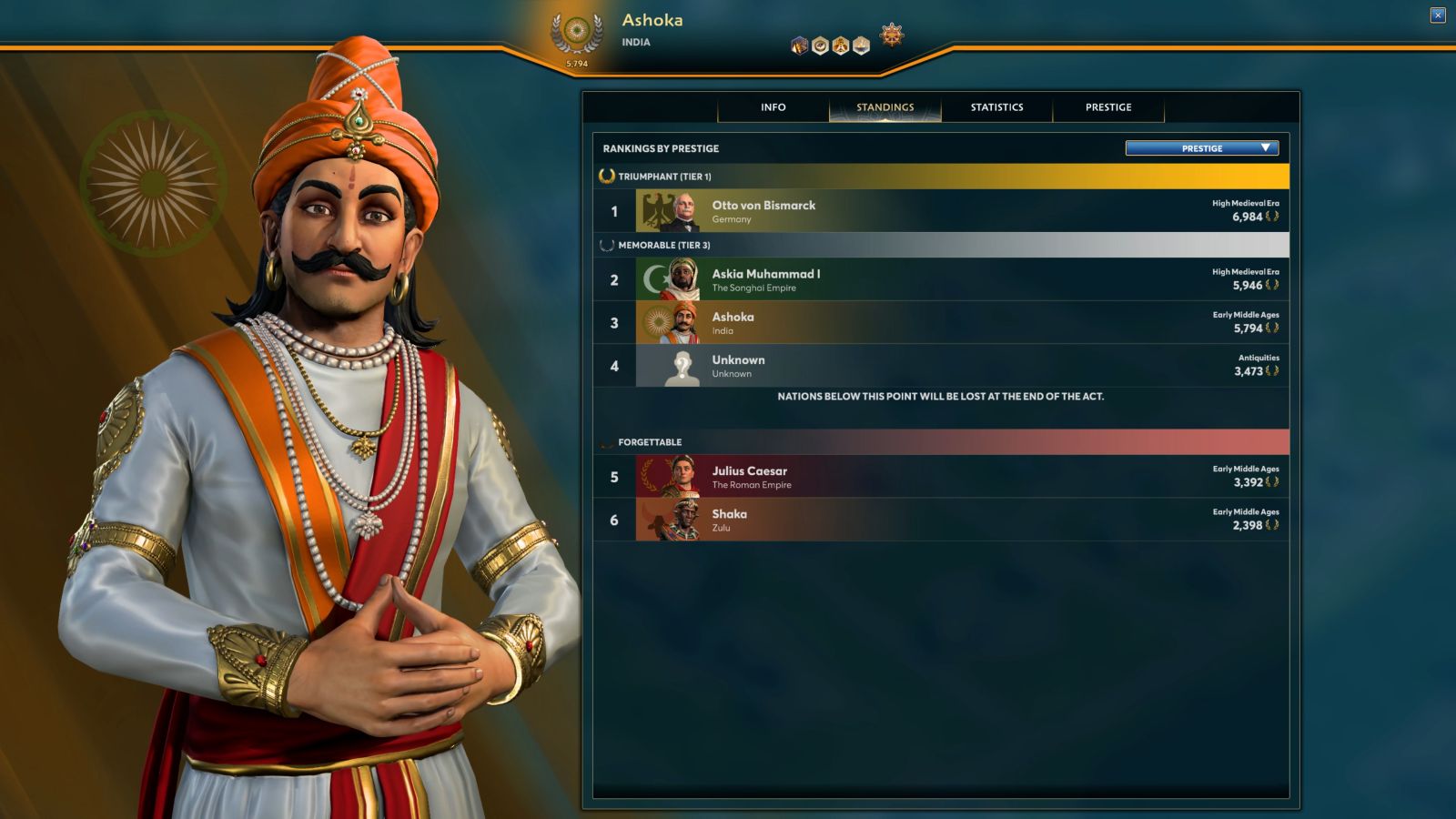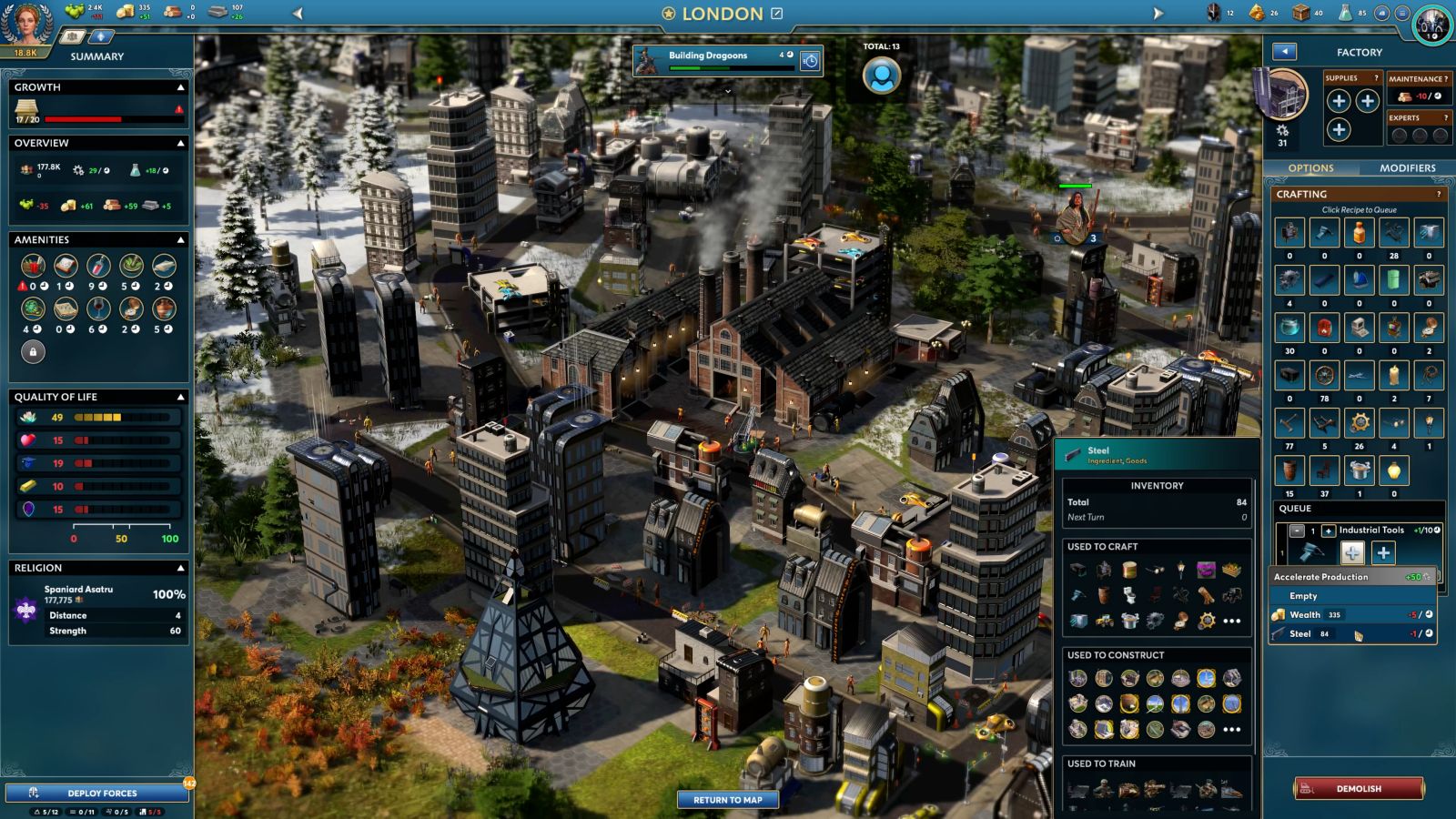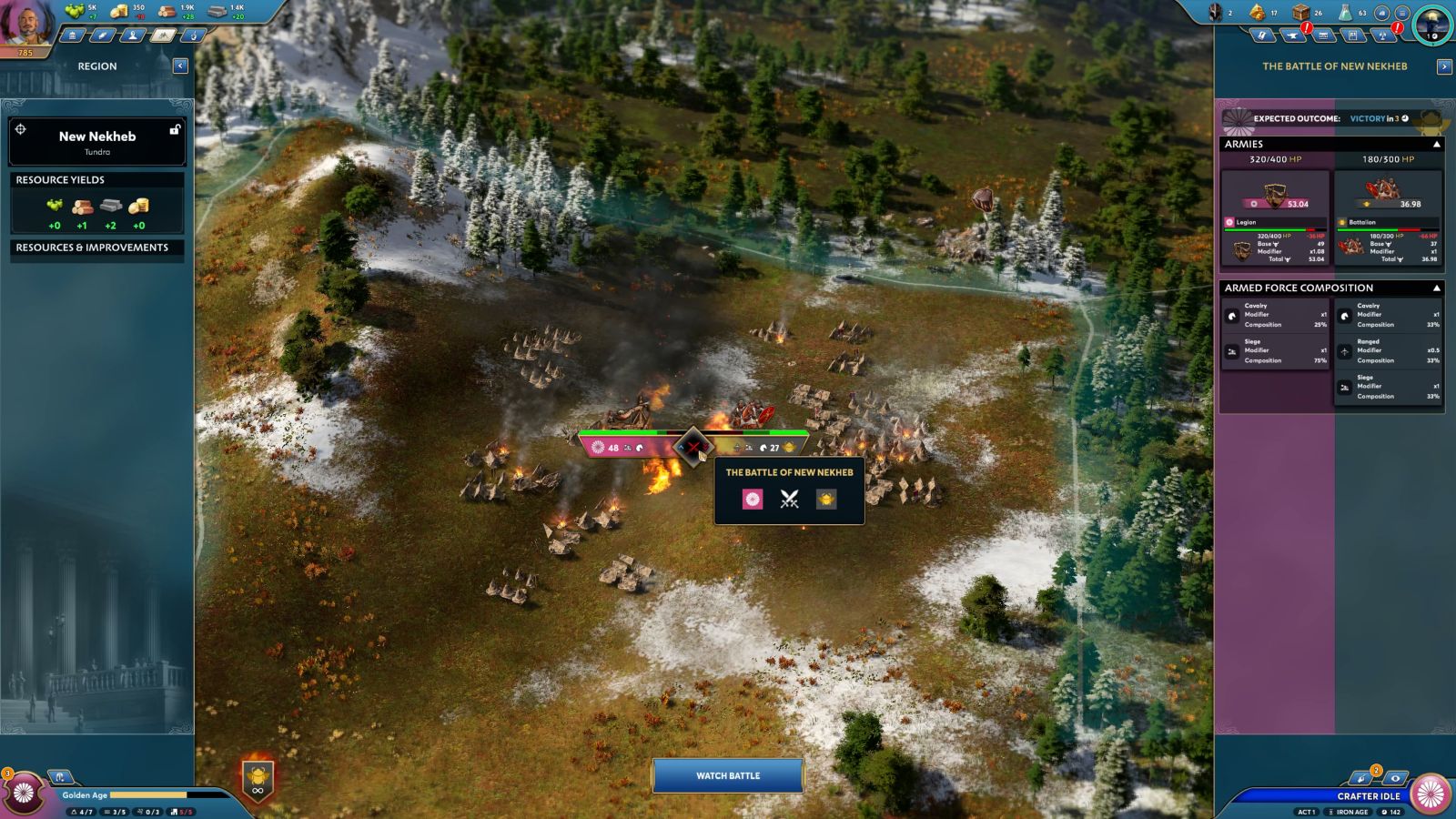My childhood’s digital entertainment consisted of an old Windows computer and the games of Sid Meier. Whether Civilization II, Alpha Centauri, or my favorite variation in Colonization, I grew up with strategy games. As I’ve gotten older, it’s been tough to play them, not for desire, but the amount of time required to sink into them. With Xbox and Oxide Games teaming up for Ara: History Untold (referred to as Ara from here on out) however, built by some of the same devs behind the Civilization franchise, I had to try the genre again. Little to my surprise, sleepless nights have ensued from losing track of time while playing, but have they been worth it?
For those unfamiliar with the genre, Ara consists of choosing a world leader from many historical figures, like George Washington or Simón Bolívar, each with their own positive and negative traits, and building a civilization around their leadership. You begin in an undiscovered and procedurally generated world, with a fog over the surrounding terrain that requires you to push through in order to survey the biomes and neighboring tribes. Some will be small groups, and others are competing world leaders looking to leave their stamp on this version of Earth. In the midst of all of this, it will be up to you to construct cities, build innovations, and discover new technologies in order to become the most powerful ruler in the world. If you’re familiar with Civilization, you’re going to have a good idea of how this game is going to play out.
Ara doesn’t start off intimidating, but it does grow into it. I’m familiar with these kinds of video games, but if you’re a new or returning player to the genre, there’s a TON to untangle. Thankfully, there is a good tutorial system present, even if you can lose yourself a bit in the amount of text. It can also be continued or restarted in subsequent games, so don’t worry that you suddenly won’t be able to refer back to the tutorial.
Unless you’re an expert in strategy games, you can expect to lose your inaugural campaign. I was truly lost in the depth of the systems; it’s a lot to take in. Even when I moved into my second game, it felt like I was only scratching the surface of figuring out what’s possible. Ara is also no slouch in difficulty; Viscount is the medium range and it kicked my butt. Some of that is my lack of initial comprehension, but it’s also because these other nations are computer controlled and thereby know the tactics to get a win. Moving your difficulty down to the easier ones can help, causing the AI to work a bit slower, but there’s still plenty of challenge available as you learn the game.

Getting a win is more than just eliminating the other nations, it’s also about raising your Prestige Level to lead them all. You earn these Prestige points by advancing your civilization in many ways, like building Triumphs like the Statue of Liberty or Cologne Cathedral, earning money, raising the populations of your city, and more. You can still get a victory through being aggressive, but Ara is tame in that regard via its ruleset. I do appreciate a standings list that tells you exactly where your opponents are relative to you, even if you haven’t encountered them yet. Ara also takes place through several acts to add structure, giving a more defined end to each era than some strategy games, so you’ll want to make sure you spend your time and resources wisely.
I didn’t expect the depth and breadth of options that would become available as I learned new technologies and started building my cities. It’s one thing to construct a logging camp, it’s another to erect your first power plant. That’s because there’s a trickle up effect: the further you progress, the more complex these things become. That’s all well and good, but these innovations come so fast and furious I’d lose track of what I was trying to achieve at times. As an example, I remember specifically looking to build a shopping mall in the third act, only to realize I didn’t have said power plant. After looking at the power plant, I saw I needed mechanized parts to build it, which led to my needing to build a workshop to make them. There are plenty of layers, and that’s a single example of how quickly you might get in the weeds just trying to improve your society. It’s well built – commendable from Oxide Studios – but can come off as confusing, especially if you miss that early element and it spirals out for years or even decades.

Expanding your territory to build all of these things is a fascinating venture, as the map isn’t following the same sort of grid system you find in other strategy games. The closest comparison is the United States’ dissimilar shapes of borders. While the territories in Ara are usually more square-like or rectangular, this different format will lead to you making choices on expansion based on the spaces of land in each. For example, I wanted to build a Triumph, so I intentionally picked a territory with two spaces available rather than four spaces for it, saving the four spacer for enlarging my businesses, residents, or farms. There are also specific resources associated with certain spaces, so keep that in mind when choosing as you can’t build certain improvements on them.
Another challenge is how your economies work. In my first game I quickly went down because I ran out of money due to constructing several establishments that cost me more via maintenance fees than I was bringing in via taxes and businesses. Admittedly, I encountered a bug where I couldn’t demolish something I didn’t need (which I was able to fix in my next playthrough via a restart), but it’s easy to overbuild if you don’t have a grasp on all of this. Take your time and learn the available resources, figure out your upgrades, do cost and benefit calculations, and then make your moves.
Speaking of making a move, combat is probably the most obtuse system in the game. You can’t simply attack someone, but must declare war. Then, you have to fight in the specific way you’ve chosen, with limitations on your attacks based on your war’s type. Even further, you have to make sure you have the correct units available, because obviously my assault military team has no idea how to climb ancient city walls. It makes you want to avoid combat, because the rules of engagement are incredibly binding.

An interesting addition Ara makes to the strategy formula is events, narrative flavor injected at different moments of your match. Strategy games can get monotonous over time, so something like having a chieftain invite you to his village for a wedding is a fun twist. It doesn’t suddenly turn into Crusader Kings – you’ll simply make the choice as to how to respond, and there will be certain benefits and costs attached. In this instance, I could either give them 50 food, 25 wealth, or not go at all, and I’d be rewarded with extra happiness in my cities for a certain amount of turns if I went. It’s a nice extra that breaks up all your clicking through menus, and they usually include a neat historical tidbit on what they’ve based it on.
Both visually and in gameplay flow, Ara works extremely well. It’s nothing special graphically, but zooming in gives you a fun close up of your society with little villagers running around like ants. The Triumphs also look really cool, and are worth building even just for the aesthetic. Playing Ara feels natural, with gameplay elements in the right places, menus simple to follow, and the shortcut buttons easy to learn. Beyond the one “demolish” button bug, I had no technical problems.




















